The hartal (general strike) today put a spoke in the works. Our driver Joshim needed to drop me off at the airport and be back at base before sunrise. The young tailor Biswajit Das having been brutally murdered in full view of the police and the media, meant we could take no chances. Joshim had been sleeping downstairs in order to be at ours at such a ridiculous hour. Rahnuma rang him at 4:00 am, and soon a groggy Joshim, Rahnuma and I were off to the airport. Rahnuma and I have never had the luxury of seeing each other off, but it didn’t feel safe for Joshim to be heading home on his own. So Rahnuma volunteered to be body guard on the return trip.
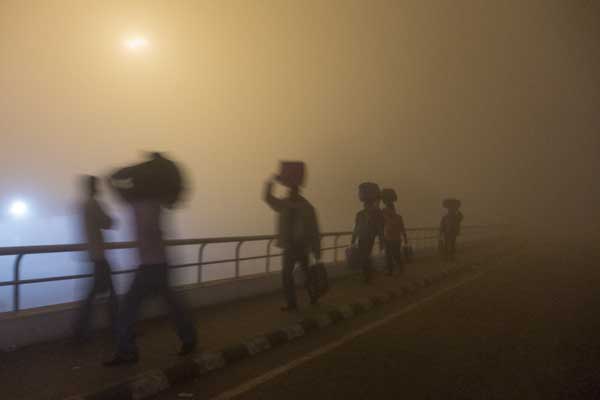
There was no traffic. At least none that we could see through the incredibly dense fog. The headlights made things worse with the fog itself being lit up by the headlight and shining the light right back at us. Without the headlights, once could at least barely make out the edges of the road. The risk of being beaten up by thugs in the street, had been replaced by the risk of getting run over by a fog blinded truck. At least we had a vehicle of our own and the option of travelling as we pleased.
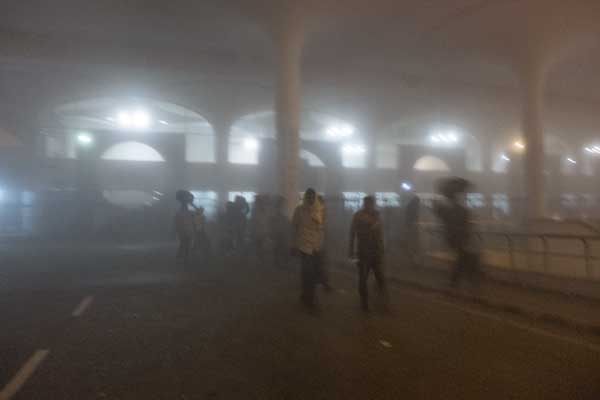
As we neared Shahjalal Airport, we saw the other travellers walking in. Long convoys of people walking eerily through the dense fog, Carrying their luggage up the ramp. “Gate 6” said the security guard. Despite the circular that passengers needed to arrive five hours prior to departure, only one of the gates to the terminal was apparently open.
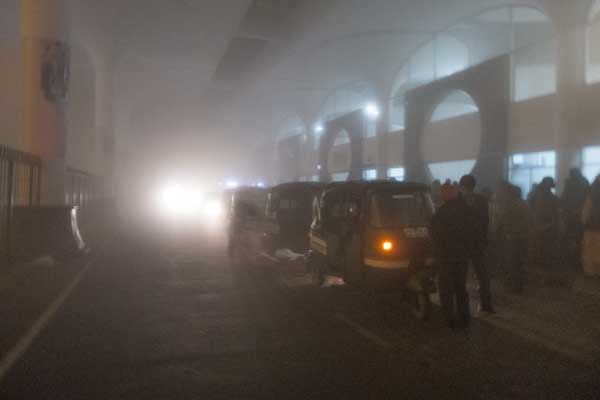
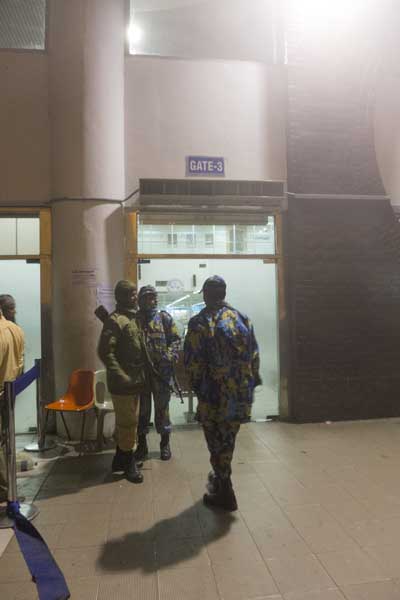
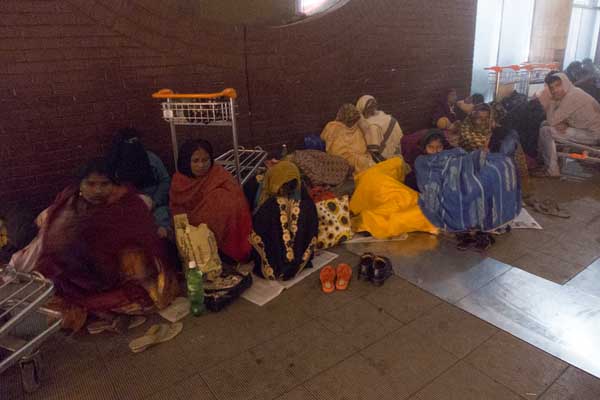
So I too trekked through the dense cluster of people to find the one open gate. Rahnuma and Joshim, stalked me in the van. Making sure I got in, before heading off.
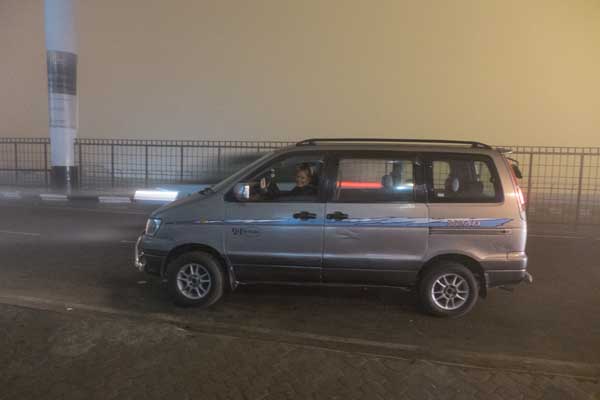
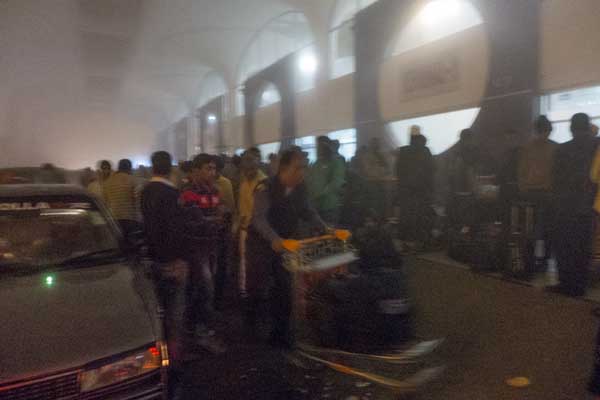
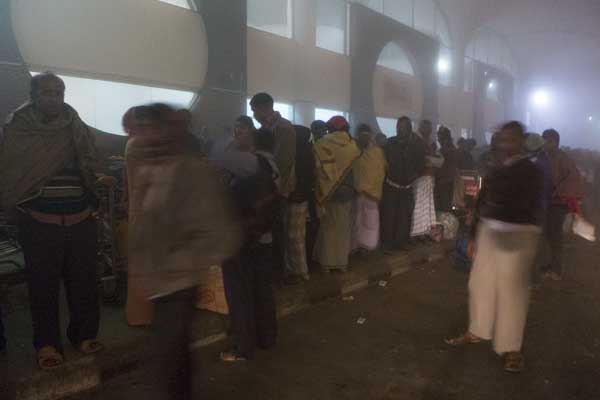
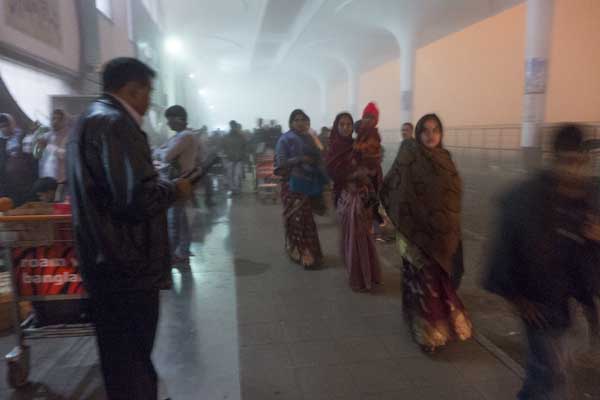
Once inside, there were other things to negotiate. The government five hour lead time was attributed to the airport not have the capacity to deal with the number of passengers coming in. With the hartal looming, many passengers had come in a day early and camped inside the airport. Their families had camped on the floor outside. Not wanting to leave without seeing the plane safely depart. So every chair in the airport was occupied, mostly by people at various stages of sleep.
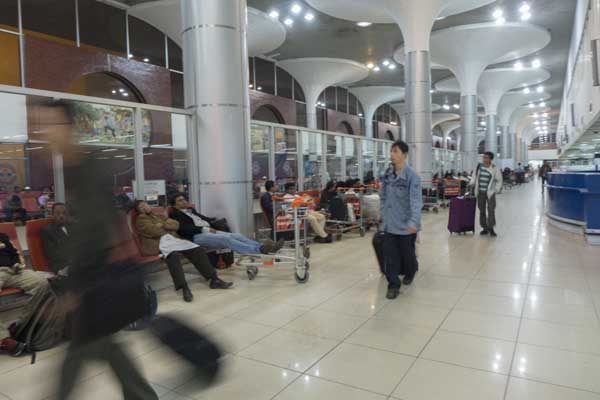
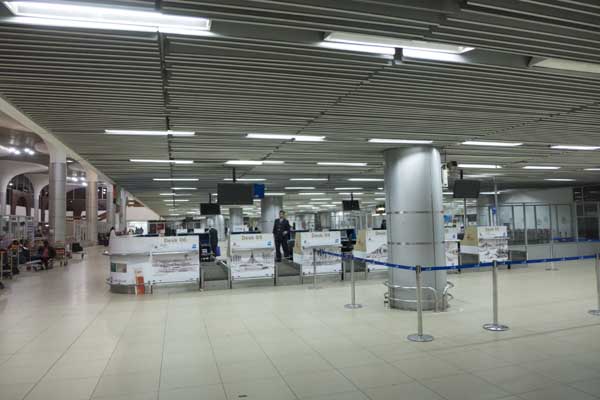
Apart from the large number of slumbering passengers, there was no one else in the airport. Certainly no sign of counters being open for business. As I searched in vain for a single sign that might suggest which check -in counter I need to go?through?That was when my name was called out. I hadn’t seen my friend, Sk. Ghulam Hussain since school days. He was now a well known soil expert, and at the cutting edge of combating climate change. He was off to Bhutan for a conference. He dragged me off to meet his other friends. Kamrul Ahsan, the director training at BARD, was going to Colombo. I promised to introduce him to Jeevani.
Conversation slowly veered ?towards the brutal murder of the young tailor Biswajit Das, the previous day. To the murder that had taken place in broad daylight.?Kamrul Ahsan talked of the ?saving all the migrant labourers, who worked themselves to the bone, brought in. The earnings of the farmers and the garment workers, who had paid for our education, and how they were treated. Of the arrest of BNP secretary general Mirza Fakhrul Islam Alamgir for Sunday’s violence but that Biswajit’s murderers had been sheltered by the police.
I sneaked away to check in, only to find the flight from Delhi having been delayed due to fog. That meant missing my connection to Kochin. With the opening of Crossfire on the 12th, a reroute through Mumbai, catching the morning flight to Kochin was the only option.
The fog is something we have little control over. The hartal however, and the government actions that led to it, are things the nation has to suffer for. Our garment workers, migrant workers and farmers, the ones who have contributed the most to the development of our nation are the ones who suffer the most, while the parasites who rule us, wax lyrical about their love for the land.
Please Retweet #fog #Bangladesh #hartal #BiswajitDas
One thought on “Airport blues”
Leave a Reply
You must be logged in to post a comment.

thanks for potraiting the airport in manner which it deserves !as you talked about our migrant workers ,you must have seen the helplessness of them form their agents and form the authorities .They literally beg sahebs’ like us to fill their immigration forms ,there is no desk no person even not a person who will take money and fill those for them ! what a treat for our so called UNSUNG HEROS .
To put some bitumen coat the all men are in trouble who will tell them to do it phase and on time ? !